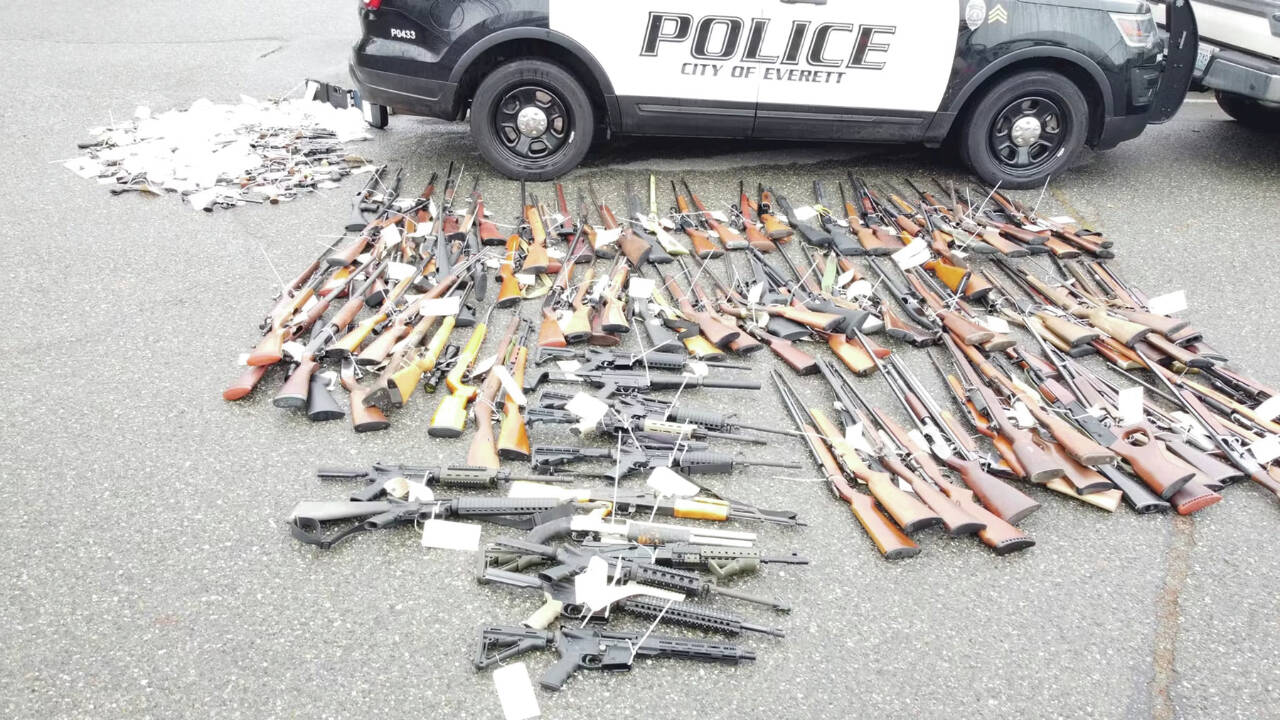By Mary Murphy
Washington State Journal
When a student at Seattle’s Ingraham High School was shot and killed two years ago, an investigation revealed the gun used in the crime was stolen.
Now, advocates from that community are speaking out and asking that more be done to curb the use of stolen firearms.
“It was not safely stored, and its theft was reported three weeks late by the owner,” said Carol Butterfield, former Parent Teacher Association President for Ingraham High School.
Butterfield said authorities discovered the gun passed between “at least four pairs of teenage hands,” before it was used at Ingraham.
Rep. Liz Berry, D-Queen Anne, introduced a bill this on reporting lost or stolen firearms. Berry herself is a victim of gun violence and has passed similar legislation in the past.
This bill is on its way to the governor’s desk and will now mandate that gun owners across Washington State report a stolen firearm within 24 hours, or a civil infraction can be applied. This includes a fine of up to $1,000.
The bill also stipulates law enforcement must enter reports of stolen firearms into the National Crime Information Center Database, and dealers of firearms are instructed to educate their customers on the penalties for noncompliance.
Gun owners as well as gun distributors took issue with the bill for a number of reasons.
“This bill misplaces the liability for criminal actions on victims of crime, not the criminal,” Aoibheann Cline, state director for the National Rifle Association, said.
“Imagine getting robbed and then slapped with the bewildering $1,000 fine.”
Cline argued state law already requires owners to report within five days and the change to 24 hours is “not fair,” unrealistic and unnecessary. Cline cited a Bureau of Alcohol, Tobacco, and Firearms (ATF) study which found in Washington State the average time between the time a gun is stolen and when it is used in a crime is 8.34 years. Nationally this figure is 6.3.
Cline also argued that owners may not even know a gun is stolen within 24 hours and that with theft, “accounting for other goods, trauma, assessing damages, or not knowing where to report,” must be considered.
Liz Hjelmseth, a victim of gun violence and a current gun owner, said knowing how guns are stored and whether they are missing is the first responsibility of a gun owner.
“But I know that if someone has enough will, they could steal my gun,” Hjelmseth said. “My reaction to that would be to immediately call the police because I would never want my weapon to be in the hands of a criminal.”
Hjelmseth and other advocates explained they would rather work with police to track down the gun early than work with police after it has been used for a crime.
Karyn Brownson, of King County Public Health said a 2023 ATF study found more than half of traced crime guns in Washington were linked to known purchasers but used in a crime by someone else.
The ATF also found the average time from when a firearm is reported missing to when it is returned to the owner is over four years.
“There are many, many opportunities for a stolen firearm to be misused over this period of time,” Brownson said.
A recent KOUW report showed that of the 54 open King County cases involving kids having guns, 20 of them were stolen.
Jordan Ferguson, retired sergeant from Spokane police department, expressed how this legislation positively affects law enforcement’s job.
“When law enforcement encounters a person with a stolen gun, the only person who knows the gun is stolen is the bad guy putting law enforcement at a greater risk,” Ferguson said.
“Law enforcement needs this information. Currently, if a person is caught stealing a firearm, it may take weeks to identify it as stolen.”
Some opposed to the bill also suggested longer sentences for people who steal firearms to prevent the crime in the first place, arguing the onus should be on the criminal, not the owner.
Two other bills winning approval in this year’s Legislature regulate the disposal of forfeited and antique firearms and firearm buy-back programs.
The buyback bill focuses on background checks for dealer employees, security measures for firearm dealers, prompt responses to trace requests and maintaining sales records.
The Washington State Journal is a nonprofit news website funded by the Washington Newspaper Publishers Association Foundation.



